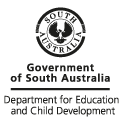Health & Wellbeing
Crunch n’ Sip
Crunch n’ Sip is a healthy snack program in which our school participates. This consists of a piece of fresh fruit or vegetable and water at about 10am daily. Please note – muesli bars, roll-ups and other dried fruit snacks cannot be eaten at healthy snack time. Parents are requested to send a water bottle to school (no cordial or other drinks) which students keep on their desk to support learning and optimum brain function.
Students with Medical Conditions
Health Care Plans
Some students may require assistance with their routine or emergency health and personal care needs. Before staff can assist with this, parents / carers must provide written information from their doctor which outlines specific care needs. Forms for care plans are available from the front office for a range of health conditions and needs, including:
- Asthma
- Diabetes
- Anaphylaxis (severe allergy)
- Medical information (for General health care or those without specific forms)
- General health information (to be completed by a general practitioner, psychiatrist or psychologist)
The purpose of these ‘Care Plan’ forms is to ensure that the school has information from the treating health professional relevant to the student’s health, well-being, attendance, learning and care at school. We can then write a ‘Health support plan’ for the child if deemed necessary by the school or if any of the following are relevant:
- There are any individual first aid requirements, other than a basic first aid response
- The child needs additional supervision for health-related safety
- There is a predictable need for additional support with daily living tasks
Health support plans are formed using the written information from the treating health professional, with discussion between school staff and the parent/guardian.
It is the responsibility of the parent/carer to:
- request these forms
- ensure all appropriate forms are completed and signed by the doctor
- sign all appropriate forms as parent/carer
- return all forms to the front office staff
- update all medical information on the appropriate forms as necessary.
Medication Management
Where possible, we encourage students to take medication outside of school hours, eg. Three times per day can be taken in the morning before school, afternoon straight after school and bedtime.
If medication needs to be taken at school students will be supervised in managing this process themselves (where capable) or will be given the medication by front office staff.
- Medication must be provided in the original pharmacist container with directions on the label.
- The child’s name must be on the original label.
- Medication must be stored safely and so needs to be taken to the front office and given to a front office staff member for storage in a secure locked cupboard. This should be handed from adult to adult, not bought in by children. Children with asthma are encouraged to carry their medication with them where recommended by a doctor.
- Students must have a medication plan filled out by a doctor and the parent /carer.
- A maximum of a week’s supply is to be provided at any time (except asthma medication).
- It is the parent / carer’s responsibility to provide the required medication. Staff will fill in the medication log and will notify parents if students fail to take their required medication.
- A medication log will be filled out by the front office staff member supervising or giving the medication (or by the classroom teacher)
Please note: Staff are unable to administer medication unless the school is provided a medication plan signed by a doctor.
Asthma
Students with asthma (even if ‘mild’ or ‘occasional’) need an asthma care plan completed and signed by the treating doctor and given to front office staff. Staff can remind students to take their preventative asthma medication prior to physical activity if this is part of the asthma care plan.
Staff are also trained to administer reliever medication in the event of an asthma attack. Parents will be contacted if this occurs. The school has reliever medication for use in emergency situations only.
The Asthma Foundation has insisted that asthma medication and spacers cannot be shared. Every child must have their own medication and spacer for ease of administration.
Children with asthma are encouraged to carry their medication with them where recommended by a doctor. All other students - ie, those who are too young to administer their own medication, must have medication in the front office with their Asthma Plan.
All asthma medication must have the pharmacist label, including the student’s name, stuck on the puffer.
Head Lice
Many children at some time will have head lice. It is not a measure of cleanliness, in fact, head lice prefer clean hair.
A note will be sent home advising you of suitable treatment if:
- Head lice are found in your child’s class
- If your child has head lice.
Head lice treatment products are available for purchase from the Front Office.
Children who have been sent home for treatment must report to the Front Office before returning to class.
NOTE: All downloads open in a new browser window
| Download | File Size | File Type |
|---|---|---|
| Headlice Control: Wet Combing and Chemical Treatment | 398 KB | Adobe PDF |
| Healthy Heads Without Headlice | 173 KB | Adobe PDF |
| You've Got What - Headlice | 41 KB | Adobe PDF |
| Headlice: Prevention and Treatment | 231 KB | Adobe PDF |
Infectious Diseases List
If your child contracts any of the following diseases please keep them at home for the stated time.
| Illness | Recovery duration |
|---|---|
| German Measles | 7 days or until fully recovered |
| Chicken Pox | 7 days or until fully recovered |
| Measles | 7 days or until fully recovered |
| Ringworm | Keep covered. Students may attend school once medical treatment starts. |
| School Sores | Blisters must have healed over. Keep covered while at school. |
| Whooping Cough | 4 weeks, or until medical certificate of recovery is produced. |









